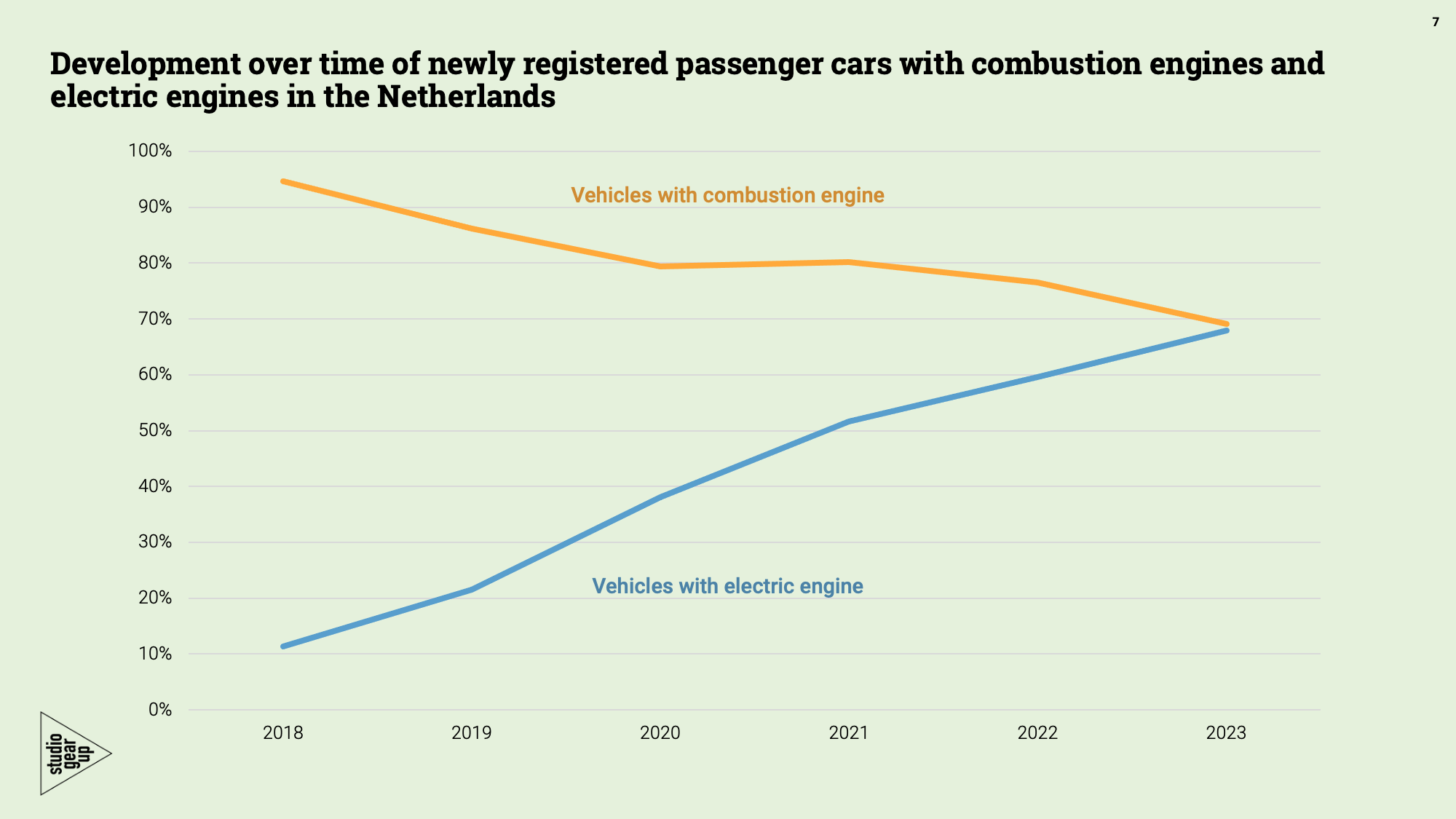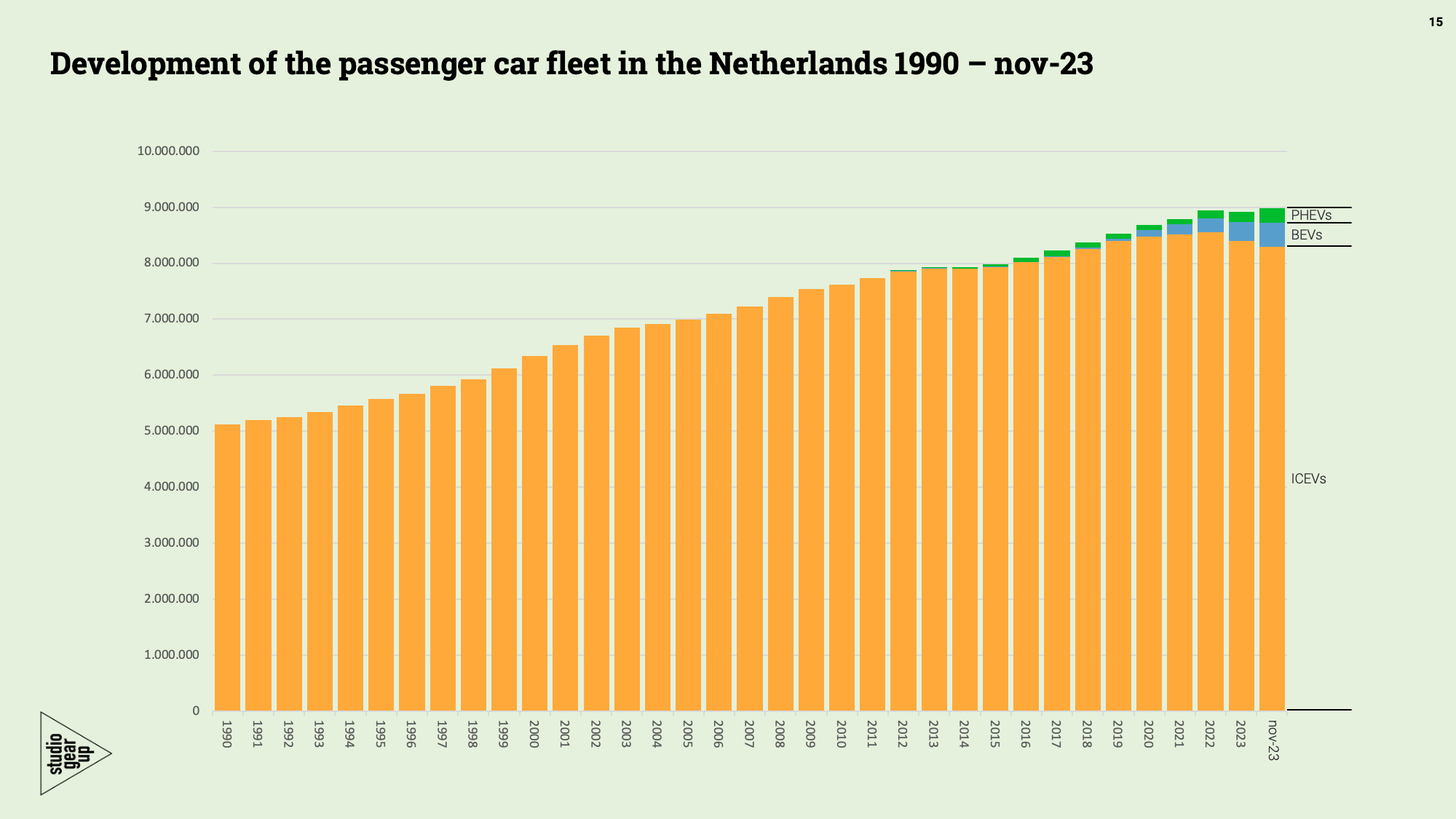2023 might turn out as being the last year (in the Netherlands) with the #iCEVdominant over #EV engines. 69% of newly registered vehicles had a combustion engine, 68% had an electric engine. Still 37% of all vehicles had both ICE and EE, ranging from mild hybrid to plug-in.
How did the change happen?
See this short video which shows the 2018 to 2023 transition. For sure the trends will continue the next years, evolving to a dominancy of vehicles with electric power trains.

At total passenger car fleet level, the dominancy of full battery electric vehicle is still moderate, but its share seems accelerating. For the first time we see a reduction of the total volume of combustion engine vehicles (with or without partial hybrid powertrain) while the total car fleet is growing year by year. According to estimates by The Netherlands Environmental Assessment Agency, the fleet will reach 10 million passenger cars by 2030, with 1.3 – 1.6 million full battery electric vehicles, following standing and announced policy plans.

Source information
Numbers on which we built the graphs were provided by RAI Vereniging / RAI Association and BOVAG. The monthly and annual statistics of new registration have also been drawn from the RVO statistics on electric mobility. Fleet information is based on data from CBS (Netherlands Statistics)



